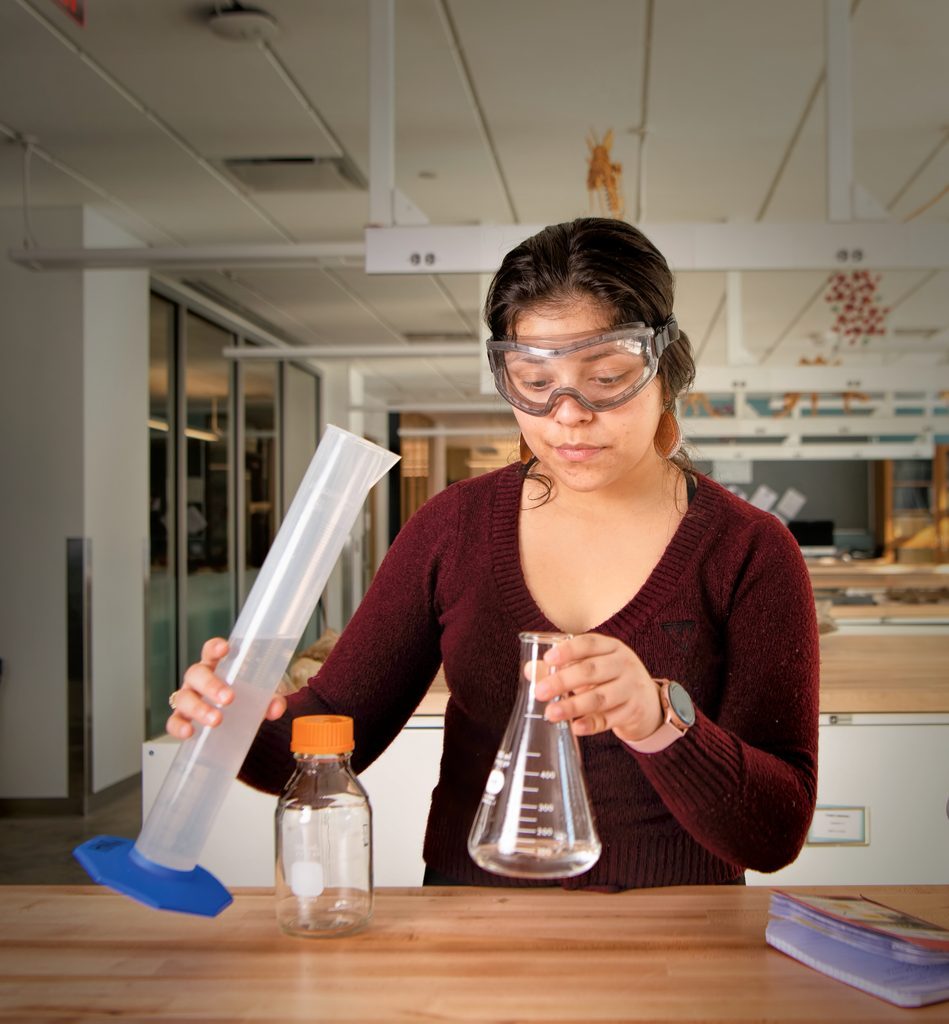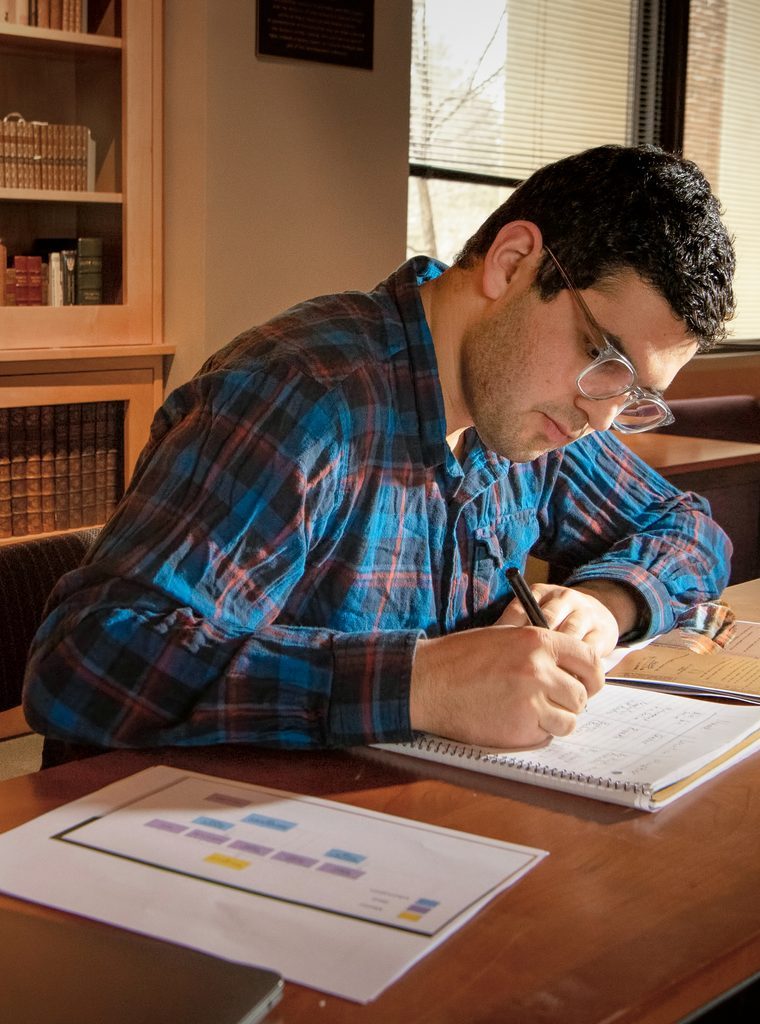Mind Melding
Enabling research opportunities for students is core to Carleton’s unique academic experience.

While other colleges tend to reserve mentored research opportunities with faculty members for seniors, Carleton has long encouraged all students to work alongside professors. Today, these positions are so highly coveted that even first-year students are clamoring for interaction, said physics professor Arjendu Pattanayak. “In fact, I’ve gotten calls asking about research opportunities from accepted students who aren’t even on campus yet,” he said.
The Every Carl for Carleton campaign aimed to meet this demand by increasing the number of research stipends. In the academic year 2019-2020 and summer 2020, 996 students completed a mentored research experience, representing a 31 percent increase from just five years ago.

The collaborations reliably prove beneficial to all involved. By asking astute questions, students broaden their knowledge base while pushing faculty members to think in different ways, sparking what President Steve Poskanzer calls “an energetic commitment to living the life of the mind.”
“Undergraduate students who have engaged directly in research with professors are going to be much stronger candidates for graduate school and for jobs in industry,” Poskanzer said.
Research opportunities abound for students in all disciplines. In science, biology major Denyse Marquez Sanchez ’21 received funding from the college’s Robert J. Kolenkow and Robert A. Reitz Endowed Fund for Student Scientific Research to become something of an apian expert. Working on a project at the University of Nevada–Reno, Marquez Sanchez helped address the impact of pesticide compounds on bumblebees.
“First I helped set up how we were going to test, which was heavily based on discussing the best way to measure our data,” Marquez Sanchez said. “The next year I ran behavior experiments on the bees. I got to see how complicated research can be.”
Without funding, Marquez Sanchez said she would have found a part-time job over winter break, which would have helped her earn money but wouldn’t have helped her education or career plans. “Being able to focus on research let me apply my biology and statistics knowledge, become more specialized, and see what being an actual researcher is like,” she says.
In the humanities, history major Aaron Forman ’21 not only traveled to the Cycladic Islands with classics professor Alex Knodell to conduct field research, he’s also done summer excavation work in Israel and researched medieval archeological sites in Tanzania.
Without funding opportunities offered through Carleton donors, Forman’s college experience would have looked dramatically different. His project with Knodell was funded with Student Research Partnership awards through the Humanities Center, and his research in Israel was funded by the Jonathan Paradise Israel Experience Fund. His trip to Tanzania was funded through the college’s Boyd Niles Travel Fellowship. “Research has given me a much better sense of what historians do outside of teaching,” said Forman, who will begin a PhD program in the department of Hebrew and Judaic Studies at New York University this fall. “And my experiences with Carleton faculty certainly prepared me for the work that I will do in upcoming years.”